Podcast (top-left-corner): Play in new window | Download
Hey, Greylock Nation —
On this episode, we speak with Mike Pawula of the Celtic Punk band, The Tossers, playing the Flat Burger Society Tuesday, March 8 with guests Crazy and the Brains. Enjoy! (transcript below)

Editor’s Note: At this time, we are able to provide a rough transcript of interviews. By choice, we edit the text of our conversations to remove verbal pauses (um, ah, uh, you know, etc.) and fragmented phrases not to make the speakers look smarter, but to make it easier for audiences who are unable to listen to the podcast and must rely on the transcript. We attempt to remain as faithful as possible to the speakers’ original meaning, and apologize for any errors of transcription.
That said, even the imperfect transcription we perform is costly. Please support us financially by becoming a member or making a one-time contribution to help us continue to provide this service.
Good morning.
Mike Pawula: Good morning, Jay. Thanks for having me.
Greylock Glass: Hey, it’s it’s great to have you here on the top left corner and we talk about all things related to the literally the top left corner of Massachusetts. That’s the Berkshires, the northern Berkshires specifically, although you’re going to be playing in Pittsfield at the Flat Burger Society, which is central Berkshires. But you know what the hell. So you are. You’re coming from Chicago. And you are. Is the whole band from Chicago, did you meet at school there or what?
Mike Pawula: Well, I mean, I can. I should say we, you know, we’ve been around quite quite a few years, so we’ve had, you know, we had some departures over time, but but your voice looks so young. Well, thank you. I try. Rock and roll keeps rocking, rolling around, I guess. Um, you know, the band started mostly, you know, there was a couple of people who grew up, you know, on the same street basically and started bands before the tossers and then it evolved to become the top surface. But so pretty much everybody in the original group met through high school or friends or just basically living in the same same area just south of Chicago. And over time, you know, we’ve had a few new people. Currently, our. Don’t know. So, yeah, we’re mostly all Chicago people, and we all, uh, everybody in the current lineup basically knows each other from just playing shows on the scene.
Greylock Glass: 1993, you said, yeah, actually, that you didn’t say that. I read your mind. No, actually, I read the I read the the bio and 1993 is a long time. I was in Seattle trying to get bands going in 1993. Wow.
Mike Pawula: And a great time to be there.
Greylock Glass: It was a great time to be there. It was a hard time to to be looking to be a lead singer with no equipment looking for bands because like everybody who thought they were, could be the next Kurt Cobain was there. I showed up in like literally in 1993. That sound that everybody had from the Seattle scene hates to be called grunge was happening. And it was really tough because you’re struggling to compete with like a million other long haired sort of greasy guys like myself for for like the very few actual bands that had their shit together. And you might join bands and very shortly somebody would be in rehab and then somebody else would be in jail and it could be a very trying time and a very trying place. Yeah. And the club’s new not to put any clubs on the spot because I guess they shouldn’t, because some of them are still around. At least the owners. But the clubs knew that it was a buyer’s market and and it was almost pay to play. Yeah. So, you know, I mean, there were some clubs that were running there, you know, three bands for three bucks, you know, you don’t make any money that way. So anyway, but but those are, you know, dark times. And they gave us some great great music and and I am here podcasting. Still, I’m still in front of the mic, and so are you. So let’s talk. Let’s talk about what. A Celtic punk underground sound. Sounds like describe how you you arrived at that.
ADVERTISEMENT
Mike Pawula: Well, I think we we arrived at a basically. I mean, the Pogues are huge to us. But we all, you know, in the early days, most of us grew up with, you know, Irish immigrant family members, and so the music of of mostly the folk music environment was always there. And then, you know, when it hits us, we’re fans of punk rock. And so we set it up and, you know, played fast and made the kids move, I guess. I think one of the things we always liked about it, though, is you could do that. And then next song you play, you could play a nice ballad and slow things down. So it gives it a dynamic that maybe normal punk bands don’t have.
Greylock Glass: That’s a really great description. I’m guessing that you probably provided that tutorial before the Pogues were. Yeah, they were huge for a lot of folks. And, you know, obviously the the Irish sound throughout the 80s was sort of, you know, U2 sort of dominated that Irish rockers base. But but they weren’t alone. You know, I think cranberries, right? That was sort of a an Irish sound a little.
Mike Pawula: Yeah, I think there’s a band called Black 47 who was kind of not quite huge, but they got around. Hmm. What good bands like The Chieftains and a lot more of them? You know the. More folky. Sure.
Greylock Glass: Traditional instrumentals Maloney, O’Connell and Keane certainly still actually out there playing around. Yeah, and I got to see them. If you ever get a chance to see them, please do because they are amazing. They do a song called The Kill Kelly, which is an Irish ballad of of. It’s based on a series of letters that were discovered in someone’s attic. And of course, the letters are all one way they’re coming from Ireland to America. And they are. They are. The very father to a son and the father keeps asking him, So when are you going to come back to Ireland? When are you going to come back? Or at least for a visit and they talk about you, send me a photo of your family. Lovely young women and men. It’s just I mean, it is the song that that puts the truth to the Irish. All of the words of Mary and all of their songs are sad. I don’t know if you’ve heard that before, but I’ve got some I. My grandfather’s Irish, so was Irish, and I got to hear a lot of tales, tales from that side of the family. So but characterize what? It means to people because, you know, when we think about music, that’s place based, whether it’s, you know, Afro-Cuban or whether it’s, you know, South American, you know, you know, Astor Piazzolla Tango Music evokes something that is important to the people who are connected culturally, geographically, but for some reason it connects to people who are. Who are not necessarily connected by heritage? What about Irish music? Do you think resonates so strongly with so many people, whether it’s Irish punk or whether it’s folk?
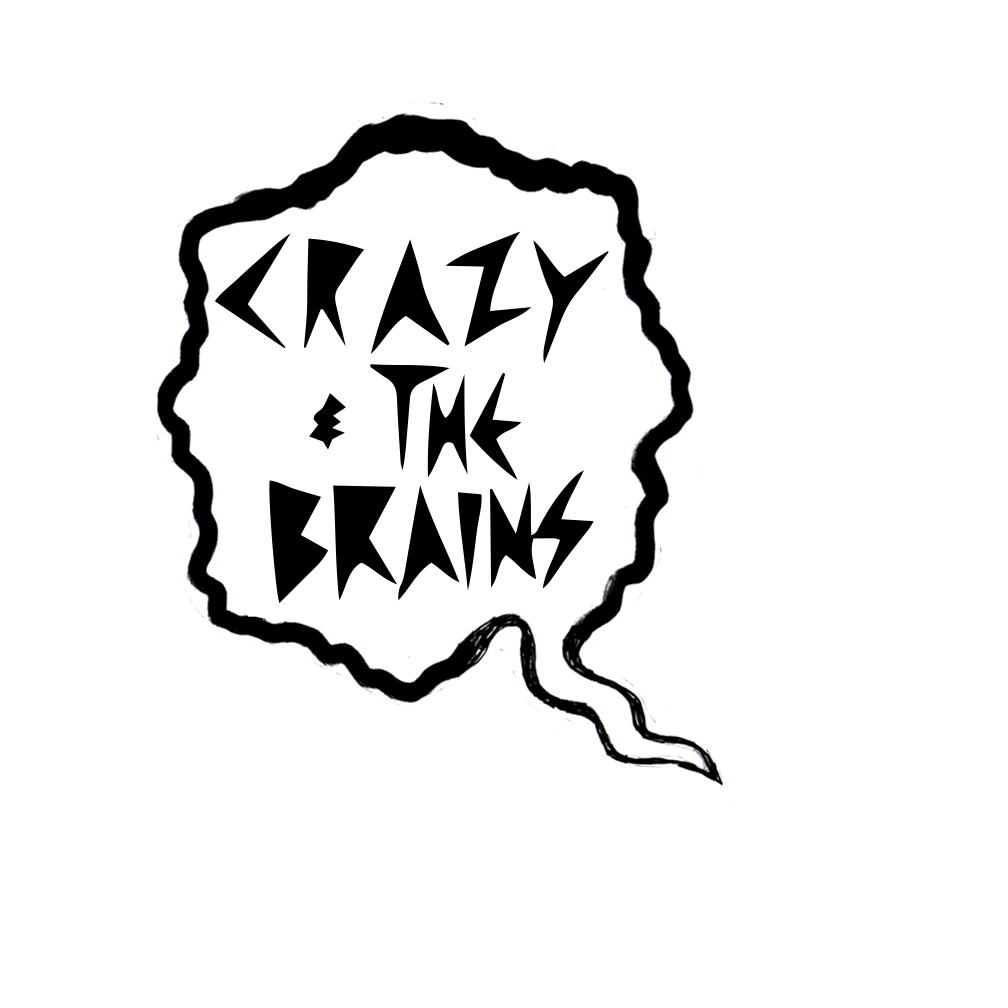
Mike Pawula: Yeah. I mean, I think I think that the Irish experience lends itself to a punk attitude to some degree.
Greylock Glass: Exactly.
Mike Pawula: You’re you’re looking at, you know, I think having a country with Ireland is always basically under the thumb of somebody, you know, I mean, I think the Irish people always felt eclipsed by Great Britain and you know, from our experiences, I mean, we don’t by any means claim to be directly from Ireland. You know, we’re a Chicago band and the Irish and Chicago have that same kind of a little bit. I had to prove ourselves, we’ve had, you know. I mean, it doesn’t happen as much nowadays, but certainly, I mean, 50 years ago, you could be discriminated against because you’re Irish. And so I think there is a sense of a little bit of an outcast in both punk and and Irish tradition.
Greylock Glass: You know, you’re right about that. And and even, yeah, 50 years, 40 years ago. I remember because I’m from Connecticut and I grew up in little tiny WASPy town called Litchfield, which is even more conservative now than it was then. And which is hard to believe because it was pretty conservative then I didn’t realize it at the time because it was a very artsy town. And you think an artsy town is going to be kind of, you know, progressive? Not always so. But I remember going, I remember going to a store when with my mom and I guess we had an account there. It was a hardware store. My father was building a house. And so she went to tell them what the last name was. And we had this in the first run of our conversation. The audience didn’t get to hear it, but it’s Velasquez, and he hears the name Velasquez. And you think he’s going to say, Oh, you know, a bean or a wetback, whatever he’s going to think, he says, No. Oh, lord. That’s just what this town needs. Another Catholic. And we’re like, What the fuck Catholic? So, you know, the Irish did get shat upon when they got here and they continued to.
Greylock Glass: And so even even into this generation, depending on where you are, there is that legacy of discrimination. In fact, in Boston, the Irish, what is it called the Irish Historical Society, but it’s like the Irish Historical Society. Yeah, they they actually support and often do joint programs with the Hispanic-American group there because they say that their image, their their image is basically the same. It’s the same sort of same sort of perception, or at least not perception so much as the stereotypes that people slap on you when they want to put you down. And I think that’s one of the things that causes that puts that seed of angst in in general. It’s a generational one, and it does show up in in the music, what when you write, are you writing? From. Emotional places, do you think do you think you’re writing from situational? I mean, when you when you’re I mean, I don’t know if you do most of the lyric writing or not, but where does that? Where do your stories come from?
Mike Pawula: Well, I don’t I don’t do most of the lyric writing, I don’t. Well, speak,
Greylock Glass: Speak for somebody else’s. If you could just get inside their head. No, I’m kidding.
Mike Pawula: Well, yeah, I mean, I won’t speak for our writer, singer, my friend. But but I can, you know, speak from my perspective to say that I think there’s, you know, there’s I guess I have to speak with some admiration because, you know, I mean, I’ve been a band with somebody for over 20 years and and I’ve seen them grow. So I mean, I I think that Tony’s become a writer where he’s he’s very fond of becoming more efficient with the economy of words. Uh, right, but I’ve seen them, I’ve seen them do things like. You know, speak write songs from the first person perspective of an old woman. Write songs, you know, just basic love songs, songs that I think echoes relationship with his wife but aren’t too on the nose. So they’re they’re universal in that way. And you know, everybody likes a good beer drinking song.
Greylock Glass: No.
Mike Pawula: So, so, you know, I’ve seen over the years him mature in such a way that, you know, I think he can write from, from any, from, you know, daily life or from, you know, thought perspectives of other people and just become more of a storyteller and storyteller. Word gets thrown around a lot these days, and I hate to hear myself say it, but
Greylock Glass: This is this is the big shoes. We’ll never get enough of it. If you’re a storyteller, you’ve got a home here. If Chicago ever gets old for you. No, it’s. Have you been to the big? Have you ever been out this way? Um, western yes.
Mike Pawula: We didn’t do we never do a lot of time in western or central mass.
Greylock Glass: Oh my God. Yeah, I do know it is.
Mike Pawula: But to Boston, OK?
Greylock Glass: Mike, Mike, Mike, I got to set you straight here.
Mike Pawula: I don’t. I don’t. I’m not saying I prefer it. I’m just saying that’s, you know how it is. Well, I do.
Greylock Glass: There’s only I know there’s only so many weekends, right? And there’s only so many weekends in a touring schedule. However, yeah, however, we have the best. I don’t know if they’re the biggest. Actually, I know they’re not quite the biggest, but we have the best American roots music scene that no one knows about. We have the first of all, we got Green River Music Festival, which is not quite the Berkshires, it’s just over in Franklin County, but it’s in green field. It’s been around since well longer than your band has been around since about 1980 86 or 87. Green River, actually since the Green River Festival. We have a Hancock Shaker village, which does a barn series every summer, literally in a big old barn. We have the fresh grass festival, which is not just bluegrass, it’s all sorts of American roots and you would fit right in there.
Mike Pawula: Fred, China-South fresh breath, I’m sure when we come through, we’ll we’ll get to get a little bit of tension.
Greylock Glass: I’m going to send you, I’m going to send you some links so that you, you know, because we, you know, I’ve listened to your tunes, I’ve seen your videos. I think you look like a lot of fun. You look like a major, a lot of fun kind of band. So I think we’re going to already we’re going to watch you on the bill later, later, maybe even this year. Well, have you come back? How much do you chew or how often are you? Are you out in the road?
Mike Pawula: Well, I mean, this is, you know, doing interviews these days is me getting my toe back in the water when you think about it, I mean, we we, like everyone else, shut down and in 2020 and but normally what we were doing towards the end, there was sometimes between four and six weeks and then and then we would just, you know, we do one off shows we’ll go out and fly out for a weekend or depending on who’s asking and if we can afford it. We all love we. You know, when you say we look like a fun band, we have fun playing, so we like to do it. And usually we don’t say no that often.
Greylock Glass: If you can make it, if it if it makes it worthwhile. Yeah, no, I hear you. And yeah, I I I’m hoping that 2020 two comes back with such a roaring vengeance that I can stop doing interviews where I have to bring up the subject of. So those last two, two years and some suck, didn’t they? Oh yes, they did, j. They sure sucked and they sucked. For a lot of people, they suck for people who run news organizations that rely on advertising from places like live music venues. Yeah, yeah. So they kind of sucked all around. But but I think and and of course, I think probably everybody with a brain has mixed feelings about this. I think that and I’m knocking on particle board right here, knock, knock, knock that counts it sawdust. I think that this is going to be the year that it it recedes. Obviously, it’s not going to go away. Right. But I think it’s going to recede enough that we’re going to get to enjoy a little bit of life again. Did you do a lot of like House House, a zoomed house shows or anything like that?
Mike Pawula: Uh, we did a couple, you know? I mean, we were we were scheduled to be playing right when everybody wanted into lockdown. So we did. Do we, you know, we basically put on a show with a couple of other bands and we’d done a few things here and there we did, you know? Some some band members, you know, basically filming in their basement, you know, just playing a couple of songs here and there. So we we dipped our toe in that water too. But you know, there’s really nothing like playing in front of people and we we have played, you know, since. Since we all went home, you know, we’ve had about four or five shows, maybe. And they’re great. They’re great, but I’m with you. I think that, you know, we’re we’re going into this tour thinking either no one’s going to show up or it’s going to start to feel like that excitement is going to be turned up to 11. And people are going to be thrilled to get out of the house and ready, ready to just enjoy themselves and have a little bit more live music in their life.
Greylock Glass: Yeah. Amen. That that’s live music in our life, our lives is is kind of long overdue. There was, though, there was this this company, and they ran a service called Concert Window. I don’t know if you’d ever heard of them.
Mike Pawula: And I don’t think I have.
Greylock Glass: They they announced the end of twenty eighteen beginning of twenty nineteen that doing a remote online concerts just wasn’t profitable and that they were shutting the company down. And thank you to everybody for their there. I’m thinking you poor bloody bastards. If you could have just held out another because they own the space, they literally owned the space. Nobody else was doing it and all you had to do is just, you know, throwing your, your camera and they took care of the rest. It was it was a great service and they they shut down, they went bankrupt or whatever they did. I don’t know if they went bankrupt, but they shut down like, you know, six months before news of of the pandemic hit. So tragic. So the was going to go somewhere, well, somewhere else with this. Oh. Talking about talking about. Issues the the other thing that folk music of all kinds and punk is is really good at is talking in a raw way. And I should I’m going to interrupt myself to say I was I was working as a barista some years ago, and there was this sort of a few that went on between some of us baristas about what’s going to be on the radio.
Greylock Glass: You know that feud? Oh, yeah, yeah. And I listen to most anything I do like punk, although it is not my forte. Folk folk is actually, you know, more my my, my thing. And this woman came in and said, Oh, thank God. Punk. And I said, punk. She goes anything but anyway. She said anything other than folk. And so I applaud you for realizing that there is that intersection. And but the the thing about both folk and punk is that it does a great job in a very raw way, emotionally raw way of singing about issues. Do you? Now, of course, nobody likes to sing about issues now because, well, not nobody, but it’s hard to get people to to give a shit, I guess about things. Do you find yourselves? I mean, I don’t know your your catalog as well as I should. Do you have a lot of issue related songs?
Mike Pawula: Well, you know, it’s funny, and this is being the second lyrics type kind of question. It’s funny that that is we’ve been practicing to get ready for this, this tour. I’ve had a lot of conversations about lyrics with with with our singer Tony and his writing. And I think if you were to go back and through the catalog and I understand that, you know, it’s six records or seven records or something, it’s not anything maybe anybody would do normally but to prepare for an interview. But like if you were to go back to the catalog, I mean, the second record into the third record was very topical about issues of the day. There was a lot of I mean, there’s a sense of protest in some of the songs.
Greylock Glass: I’m guessing that was like the early bush years, maybe.
Mike Pawula: Uh, yeah, yeah, I mean, we’re talking right at that cusp, I think the second record came out in 2000 and the third in 2003. Um, and I’m not even sure that they were all a reaction to that, but maybe a little bit. And I think over time. I’m not going to say for, you know, part of our conversations flesh this out, but I think over time when I go back to saying that he was, he’s become more economical with his lyric writing, I think that some of that protest, some of that anger is gone. So I don’t think, you know, over the last couple of records, we don’t really have a lot of issue songs that are looking out at the world, they’re more, I guess, micro sure songs, songs about interpersonal things and, you know, even if it’s, you know, songs about getting in fights.
Greylock Glass: Yeah, I get that. I do get that. And you know, I. I’m not any sort of spring chicken myself, as you probably might guess from some of the dates I’ve dropped. Yeah, but you’re probably right.
Mike Pawula: There we were. We were on the coast, probably. Yeah, that’s same thing.
Greylock Glass: I’m guessing that’s about, yeah, it’s about the same. And although, like I said, your voice is much more well preserved than mine. I my voice, my voice is showing its age. The the thing. The thing that I find myself trying to avoid, but I slip into is the sort of wise old, curmudgeonly sage that just doesn’t have the emotional firepower that I used to have as a young man that I’m just sort of I’m seeing the world from this, this sort of seasoned perspective, the jaded and getting really angry. It’s hard to do. Now that’s not to say that I can’t get angry safe for my kid’s future, and I and I do. I think it’s a shit show that they’re going to be inheriting because we’re we’re not going to get the climate crisis under control. It’s just as you can see, it is not happening. We are not doing a goddamn thing to to bring it to heel. And now I’m looking at what’s going on over there in, you know, on the border, but not on the border. Screw it. It’s it’s right there in Kiev, in Ukraine. I’m looking at I’m saying, what the hell kind of world is this? What is this? We’re sitting here. This was supposed to be so 20th century. This is passé. This shit. Mm hmm. And of course, you know, you talked about, you know, Ireland being under the under the the boot, the well-polished boot of Empire, Ukraine must be feeling a little bit of that themselves. Imagine some of the punk that’s going to be coming out of there over the next couple of decades.
Mike Pawula: Yeah, yeah. Well, I mean, you’d hope, you’d hope. I mean, the one strange thing that I see is that I saw it would happen would be when when Donald Trump was elected. Uh, I thought there would be a lot more reactionary music. And I didn’t see as much that I thought I would know now.
Greylock Glass: I don’t know what happened. I mean, like we have, we have we have the Berkshires, right? And everybody thinks that were very liberal. I guess we’re liberal, but sort of like in a neoliberal kind of way, in a in a very, you know, like it’s a well-heeled, very, very diplomatic, very sophisticated. You know, we don’t get too angry about anything. We have this group that stands out. It’s an antiwar group. They’ve been standing outside for 17 years or something. And I think since the since the Gulf War, and they’re all like seventy five years old.
Mike Pawula: Oh wow.
Greylock Glass: They’re all there’s just like no young people and they stand out every Thursday night and wave their, you know, their signs at the cars going by. And and I just I don’t know. I think I think the Patriot Act scared the shit out of people. And I think that I think that Edward Snowden’s revelations that we are yes, we’re actually really all being watched all the freaking time. I think that maybe scared people and I think that that’s a stupid reaction to be scared. But but, you know, I can’t really blame anybody because let’s face it, I mean, I know I know that as a as a self-described alternative independent media source, you know, I’m, you know, painting a target on my own forehead. Not every not everybody wants to do that. I’m like, fucking, you know what I can do to me? I’m already poor. So the all they could do is take my life and my freedom or, you know, put me and put me in room one on one. I don’t know why people are not upset. I think it’s because we’ve had years of relative comfort and our toys have gotten really good. Yeah, I think our toys and our comforts have gotten really, really sophisticated, and I think it will be an event that takes shit away from us that sort of wakes us up again. That’s my my take.
Mike Pawula: Yeah, I can see that, I mean. And don’t get me wrong, I should also go back and footnote that comment and by saying, I’m also. An old man in some ways, and so for, you know, to say I could have missed movements and music that somebody who’s you know, 18 to 30 was was making that, you know, if I were exposed to it would blow my mind. It’s quite possible that I that I have. And of course, you know, there is just the way the landscape has changed over time and the emergence of hip hop is just a monster part of the music industry. I’m sure there could be songs and artists there right again, right? Maybe are are carrying the torch for a lot of the things that maybe punk did in the old days.
Greylock Glass: I think, yeah, I think you are correct and you are acting responsibly. You’re acting responsibly in front of the microphone. And I’m not. I’m being reckless with my generalizations. You’re right. And and I was doing I was doing a podcast back in 2005. It was back when, well, back when everybody assumed we were going to be staying in her mother’s basement forever. No, podcasting wasn’t getting a lot of love, but I had one called the mongrels howl and there was an alternative strictly Boston area music scene because Boston has enough that you can you can do a show on that pretty much forever. But there were a couple of bands, but I just feel like the you know who who were. They had some, some strong messages, but they always ended up seeing sort of fading into the fringe. And and I don’t know, hip hop, it’s like, that is my weakness right there. And so and I know that there’s there are songs of protest in it. I just don’t I don’t know the genre and that’s that’s my bad. But I think that I think that you’re going to start seeing more. More. Socially, politically conscious tunes coming up because we have no other choice. We have to get the word out there and we have the tools, right? I mean, we have tools today, Mike, that you did not have in 1993 when you were starting out in shit to get the tell me how what what is your your your strategy in getting the music out? I’d love to hear this. What’s sort of how do you how do you get your your sound out there?
Mike Pawula: You know, I mean, we. Having been around as long as we have, you’d think we’d be better. But luckily, you know, over the time we’ve had, we we worked with several record labels and that’s been great. But this is, you know, we’re finding ourselves at a point now over the last couple of years where it’s the first time since since 2000 where we didn’t have any kind of record label and no press apparatus. And and so, you know, we’re relying on social media a lot and trying to keep interacting with people who like us. And, you know, I don’t want to say we’re resting on our laurels, but you know, we’re we’re we’re trying to, you know, keep engaged with our fans. I think the idea of making new fans is fantastic. We’d love to do it. We love to get more exposure and, you know, we just keep on grinding it out. You know, every fan, anybody who wants to hear us, enjoy us, come to a live show we welcome with open arms.
Greylock Glass: Well, I have a I have good. Good.
Mike Pawula: I was going to say, but but certainly we are. We’re not pros at this kind of thing. And I think, you know, our generation was like, maybe the one that that just passed some of the social media sense where we were just a couple of years. I was just talking to family members the other day about how few people I grew up with her on social media. And it’s just, you know, our age group, we’re really not great with it, I think we need an intern or something.
Greylock Glass: I think we need an intern. Well, I’ve had to be because of what I do, but honestly, I I don’t I don’t appreciate the fact that I’m forced to go there. I guess it’s how I’d want to. I’d want to put it. I’d want to put it that because like, even when I want people to sign up for the newsletter like and I assume you’ve got like a newsletter of some kind, or maybe I shouldn’t assume if you don’t get a newsletter. But to be to have to go and rely on Mark Zuckerberg to put the invitation out there for one out of every thousand people who might stumble across my page. It’s yeah, really. It’s like, you know, it used to be in the early days. Facebook, you know, if you were running a business and you were using Facebook, you could get some real engagement, some interaction. Yeah. Today, it’s it’s pay to play and it’s so hard because if you’re not paying for the ads, the algorithm decides, well, we’ll show this to like I said, like one out of a thousand people, one out of ten thousand people, whatever, whatever their secret number is. Did you say you have a newsletter?
Mike Pawula: No, no, we don’t.
Greylock Glass: Yeah, I would definitely start with that because that a newsletter means that you’re keeping people engaged and you can.
Mike Pawula: I like that. I like that idea. I think the thing that gets us is that, you know, you’re trying to make art and. There’s in a modern world, you don’t you can’t just make the art, you’ve got to sell the art, you’ve got to brand your image, you’ve got there’s a 360 degree look you’ve got to do where, you know, I think we grew up in a time where maybe you could you could make your art and as long as you didn’t. You know. Drowned babies or do something awful like that, you could potentially, you know, have a career working with other people.
Greylock Glass: Yeah, and like the the most branding you were going to do is you’re going to be walking around town with a stack of of handbills and a staple gun, and you’re going to be stapling them to to telephone poles, you know, tonight, eight p.m. or whatever. And that was your marketing, right? There was, you know, getting high and and putting your your handbills all over town. And that was, you know, that was the 90s, the 80s going way back. Now you’re right, you do have to be slick as hell with your marketing if you want to grow. The thing that I like about the here’s what I like about the newsletter, though, is, you know, you can have if you have a website, you can have people signing up a little pop up or whatever, even just some on the side people will. If they like your music, they’re going to want to know when the next thing is coming out, or they’re going to want to know when you are doing a little a little, you know, live talkback or whatever and and you own that. You own those that audience, you know, own them. But you know, you you you’re not relying on on Twitter or Facebook. Right, right. You want to communicate. You can communicate directly.
Mike Pawula: So that’s more like the idea.
Greylock Glass: That’s my and you can, you know, it shows you just put out a clipboard and people will sign up and they will sign up. So anyway, I forget where I was going with this and why I was talking about social media, but I guess it was just the idea that we are in a different era. And that and I do like to ask different bands how they get their their their art out there. I have another opportunity to get to get your art out there. I have another or two other. I have two shows. This is a local news show because you’re coming here. We want people to buy tickets, see the show at the Flat Berger Society. And and that’s great. But I also have these two other shows. One of them is called Indecent Exposure, and it’s indie music and eclectic indie music podcast. And the other one is the Cornbread Café, which is American roots music. And I don’t do punk in there. But then again, I’ve never had the tossers on the line to talk to you about that. And these are internationally heard shows. So if you would like your tunes to be heard by people from everywhere from Australia, Italy, Germany, South America, Malaysia, I have listeners in Malaysia. How they find me. Fuck if I know. But they do find me. So the. So we’ll talk about that. Maybe off after we say goodbye. Yeah, that’s you know, we’ll talk about that there. Tell me something. I love this video and of course, I’m going to embed this in the show notes to this episode of Good Morning DA. It’s it’s a it’s a great video, and I’m not going to spoil it, but it’s it has a. Huh. It’s like if the it’s like the commitments meets Clockwork Orange. It’s a it’s funny, but I can’t embed that and also have it in the podcast because that’d be a little redundant there. You don’t have a label right now to sue me. Is there a song that that we should play on this podcast to get people, you know, jazzed, psyched about buying tickets?
Mike Pawula: I think, yeah, I mean, I think you can probably get away with with the last, some of the last, the last record we made. It’s called Smash the Windows and we put out a video for Smash two into the song. You probably get away with it. I mean, at this point, our label sold their stake and the records to a big conglomerate, so I think we’re going to get away with it.
Greylock Glass: Hmm, let me think about that, do you think? Well, if the big conglomerate. Are they going to care?
Mike Pawula: You know, maybe I maybe I can just shoot you the email off line. Yeah, and you can make the call on your own.
Greylock Glass: We’ll do it offline. Well, the thing is, I have I go with Blueberry podcast hosting and and I’m not like an affiliate or anything, but but in case anyone is wondering, the great, it’s blueberry pie. No. No ease. But I had this conversation with the owner of that company, and he said eight years ago, almost eight, you know, seven and a half years ago. You know what? You do a music podcast. I’m just telling you right now you’re going to get takedown notices and I’m going to have to pull it. I’m going to have to pull those episodes. Maybe the whole podcast, if you get sued, it’s not my thing. Well, in seven and a half years, I’ve never gotten a takedown notice. And and I don’t want to prove him right. Sure. So I mean, it’s not like a big deal. They just tell you, take the frickin music down and you take it down. But you know, I don’t like losing arguments like that.
Mike Pawula: No, no, no. I tell you, yeah, well, what? You are flying and we can get get this straight.
Greylock Glass: Yeah. Well, whatever the case is for now, ladies and gentlemen, rockers of all ages at the very minimum, make sure if you’re listening to this on your iPod podcast catcher like you know, on your iPhone or whatever. Go when you get a chance to the show, notes Greylock Glassdoor.com. You’ll see it right there on the home page. The link to this episode, as long as it’s within the next couple of weeks because it’s obviously not going to be there in two years, but so many caveats with podcasting because it’s not live at the very minimum. Check out the embedded video. Good morning, doc! I think. Because I think we’re I don’t know, are we I guess we’re probably about done here, I mean, I I think I’ve milked you, I’ve milked you dry. Mike, what else do we need to know about the tossers? How should people get in touch with you?
Mike Pawula: You know, we do have Instagram, Twitter, Facebook, and we do. We do respond. I mean, we have I think we have a pretty good relationship, you know, with with fans that we’re trying to, you know, keep going. We do respond to DMs and whatnot. So I think that’s the first place to go. You’re going to find all our tour dates and all those social media locations. And so start there. And and, you know, if you want to, we’re going to go out starting on the 2nd of March for about two and a half weeks. We’ll be touring towards the East Coast and we love to see people come out.
Greylock Glass: All right. Well, do that. Ladies and gentlemen, find out more about the tossers and then be sure that you go. It’ll be a link in the show notes to get tickets to the tossers with guests crazy in the brains. Tuesday, March 8th at eight p.m. at the Flat Berger Society in Pittsfield. All the links in the show notes I will leave you with everything you need to immerse yourself in this experience. That is what we do here at the Gorilla Glass. That is why the top left corner exists to make sure you are connected. Your main line mainlining your right into your veins. The kind of culture that keeps you going. Mike, let’s talk offline. But for now, thanks for coming on the top left corner and I bid you safe travels.
Mike Pawula: Thanks, Jay. Thanks for having me and great show. Thanks.
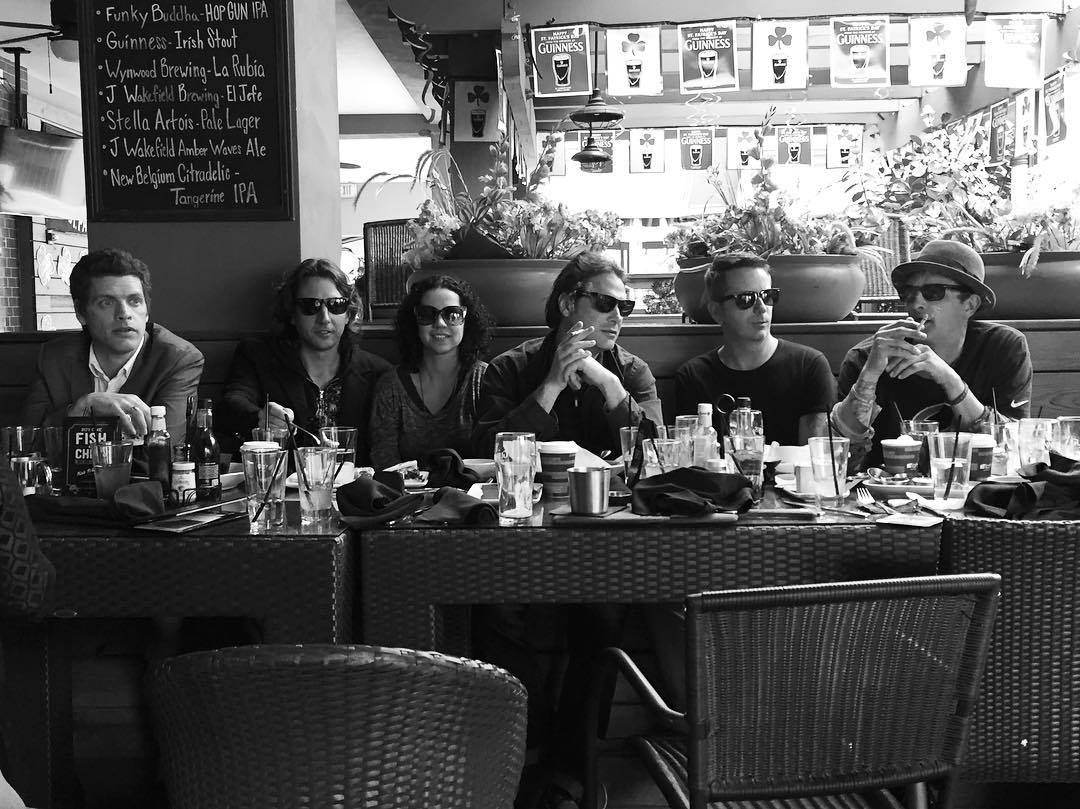



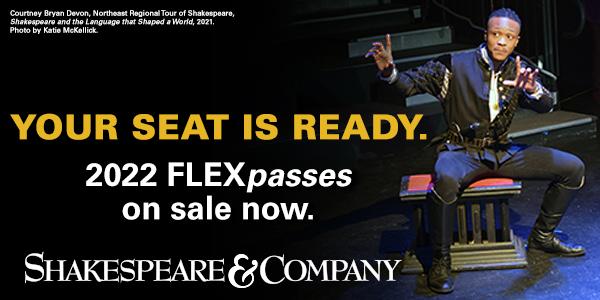
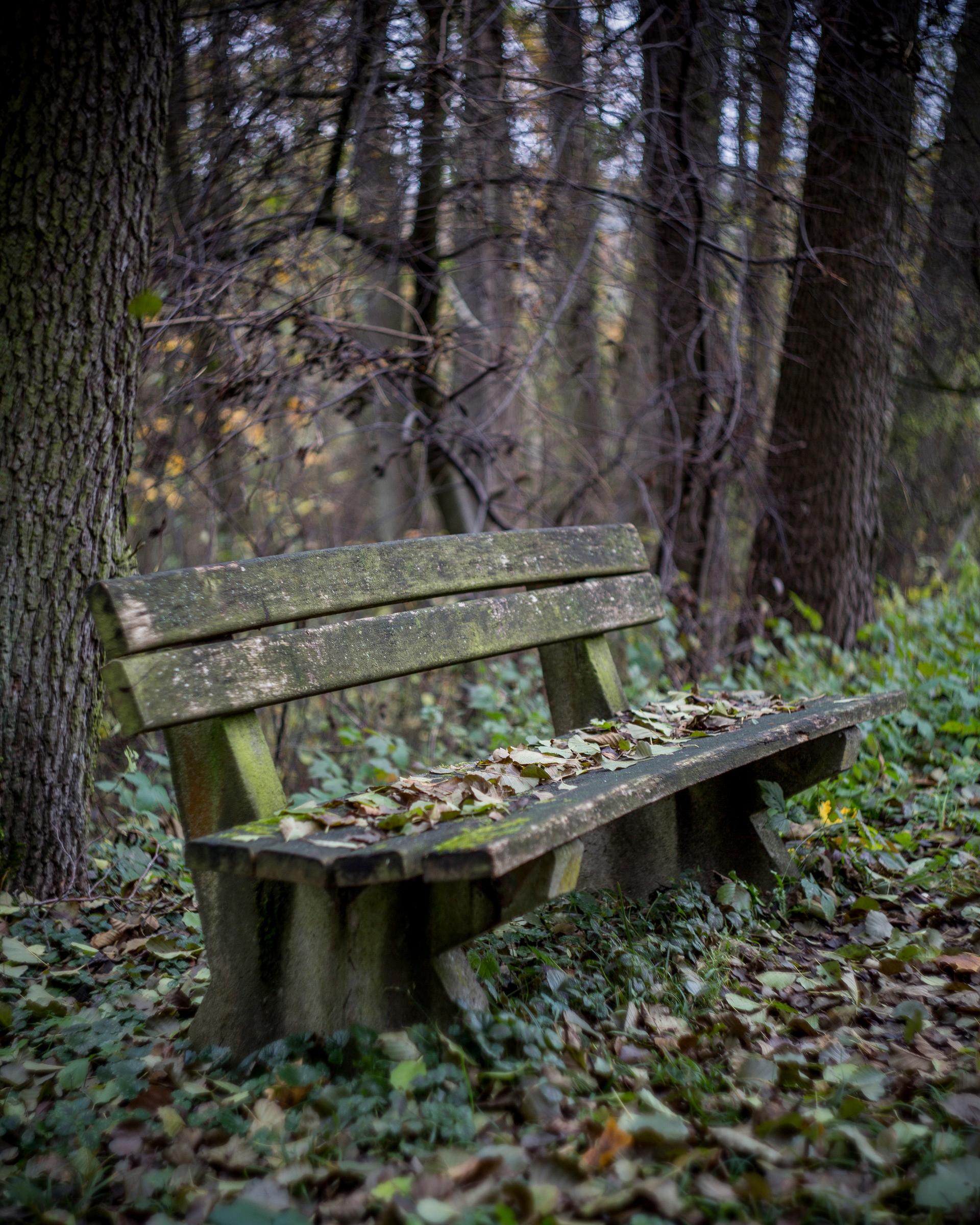
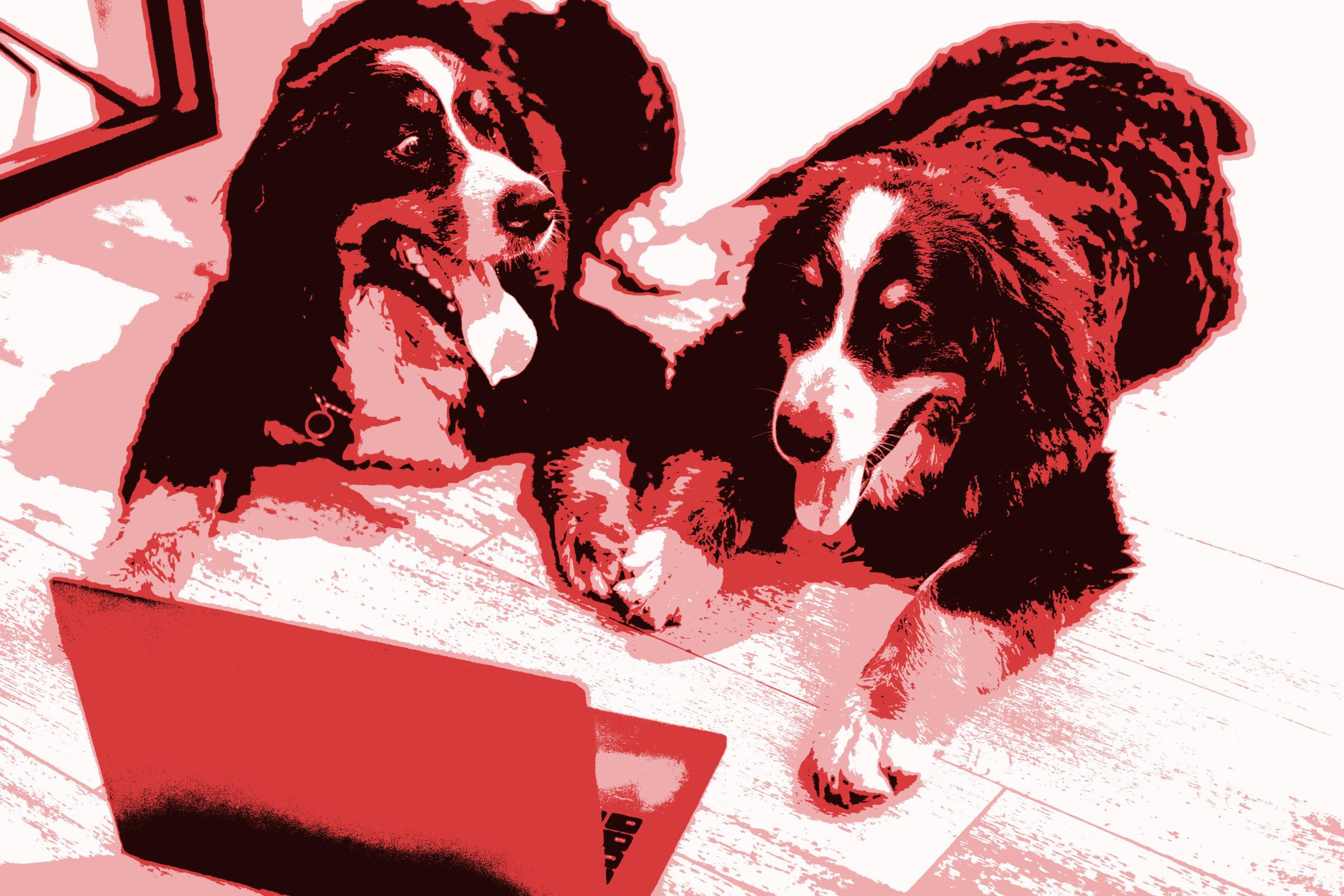
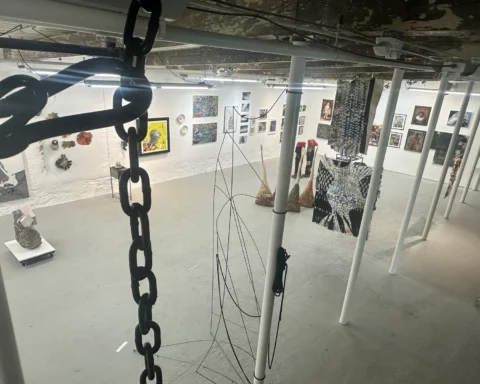
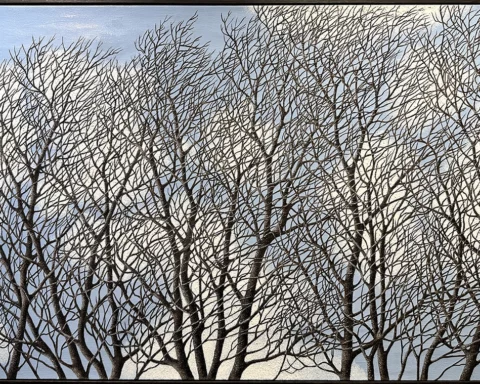


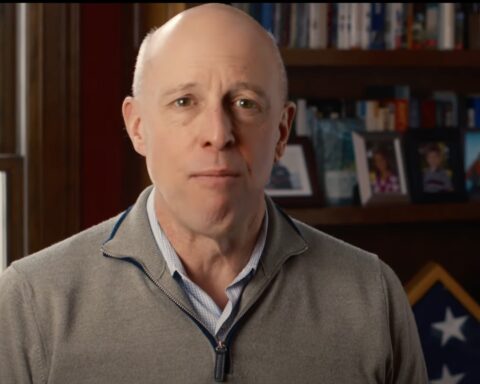









You must be logged in to post a comment.